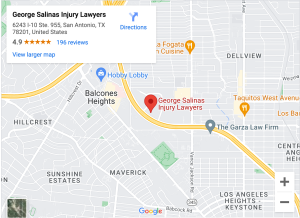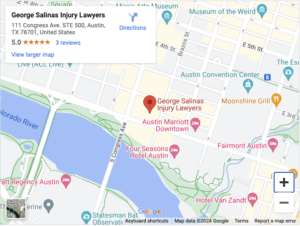In recent years, Austin’s nursing homes have come under attack for egregious instances of abuse that have occurred inside their facilities. In July 2017, an employee at an Austin-area nursing home allegedly punished a resident for wetting the bed by flipping the elderly woman over and striking her repeatedly.
Earlier in 2017, the Texas Department of Aging and Disability Services investigated a Snapchat video of a nursing assistant at another Austin-area nursing home who tickled a resident’s nose with a feather while the resident’s hand was covered in feces. Unfortunately, these types of incidents are all too common in Texas nursing homes.
If you or a loved one suffered from abuse at a nursing home in Austin, your first priority should be to end the abuse. Start by filing a report with the Texas Department of Health and Human Services by calling 210-225-0909, or file online with the Texas Attorney General.
Next, you should contact a personal injury lawyer who has experience representing individuals who have suffered from nursing home abuse. Intentional harm or staff negligence might entitle you to compensation.
No amount of money will replace the dignity stripped from you or your loved one who has been harmed by a caretaker, but compensation can help pay for a better facility. If you are in the Austin area, call the George Salinas Injury Lawyers at 210-225-0909 for a free consultation and to discuss the details of your case.
The Broad Scope of Nursing Home Abuse
Nursing home abuse falls under the umbrella of elder abuse and includes any type of abuse of a nursing home resident, whether by caregivers, other facility staff members, or other residents.
The Texas Attorney General broadly defines elder abuse to include—among other things—involuntary seclusion, intimidation, humiliation, threats of punishment, and even disparaging gestured language, regardless of the resident’s level of comprehension.
When most people think of abuse, they think of physical assault. However, elder abuse includes neglect and exploitation as well. In fact, nursing home abuse frequently involves neglect and improper care.
Regardless of whether the neglect is intentional or unintentional, it typically involves denying nursing home residents the medical care and supervision that they need. Some examples of neglect in nursing homes include:
- Residents who develop bedsores from lack of proper body adjustments.
- Slip and falls, especially when residents are left unsupervised or caregivers don’t answer call lights.
- Withholding food and drink from residents, so they won’t need help to the restroom.
- Bruises, cuts, breaks, and other bodily harm from not using proper lifting or turning techniques to move residents.
Signs and Symptoms of Abuse
If your loved one is in a nursing home and you suspect abuse, you can look for specific signs, symptoms, and injuries that might indicate that he or she has suffered abuse, neglect, or exploitation. The Texas Department of Health and Human Services cautions family members and workers to look for the following:
- Signs of physical abuse might include bruises, burns, welts, black eyes, cuts, and rope marks. Residents might have fractures or broken bones, open wounds that haven’t been treated, sprains, dislocations, or internal injuries. Broken eyeglasses might also be a sign of physical abuse. Some residents will have a change in behavior indicating abuse. A caregiver who refused to allow you to see your family member alone also strongly signals the likelihood of physical abuse.
- Signs of emotional abuse include a resident who is frequently agitated or upset. Residents who have been emotionally abused might also be withdrawn or non-responsive. The abuser often attributes this behavior to dementia.
- A resident who has bruises around their breasts or genital area might be a victim of sexual abuse. Other signs of sexual abuse include unexplained sexually transmitted diseases, genital infections, unexplained vaginal or anal bleeding, and torn, stained, or bloody underwear.
- Individuals who are victims of neglect often have poor hygiene; they might appear malnourished and dehydrated, and they might have untreated bed sores.
- Exploitation is most often financial in nature. Quick changes to a resident’s will, the disappearance of valuables, or the discovery of forged signatures are common signs of exploitation in nursing home residents.
Causes of Nursing Home Abuse
The Texas Department of Health and Human Services reports several factors about nursing homes that put residents at risk for abuse when they live in a long-term care facility, including if:
- The nursing home lacks proper training for staff.
- The facility has high staff turnover.
- The nursing home has a low-staff level with many caregivers working overtime in poor working conditions.
- The nursing home has a high percentage of residents with dementia or Alzheimer’s disease.
Damages in Nursing Home Abuse Cases
Victims of nursing home abuse in the Austin area might be able to recover the following types of damages related to their injuries:
- Medical costs, including hospital stays, surgery, prescription medications, x-rays and other scans, physical therapy, and more
- Costs for assistive devices, such as wheelchairs, canes, and walkers that are needed during recovery
- Compensation for physical pain and suffering
- Compensation for emotional pain and suffering
In cases that involve gross negligence, or where someone intended to harm you or your loved one, you might be entitled to punitive damages, which courts award to punish those who are responsible for such behavior.
Hire a Skilled Nursing Home Abuse Attorney in Austin
If you or a loved one has been neglected or abused in a nursing home, you are likely going through a very difficult time. If you have been abused, you don’t need to fight this alone; there are people on your side, including experienced attorneys who want to help.
If your family member has been abused, don’t blame yourself; you are not responsible for nursing home abuse, and you can hold those who are responsible accountable.
Hire an Austin-area personal injury attorney who has experience representing victims of nursing home abuse. Call George Salinas Injury Lawyers today at 210-225-0909, or contact us online, to schedule your free consultation.
Review: 5/5
★ ★ ★ ★ ★
“He helped me understand every stage of my case and fought hard for me. I was proud to have him on my side.”
-Stephen P.


